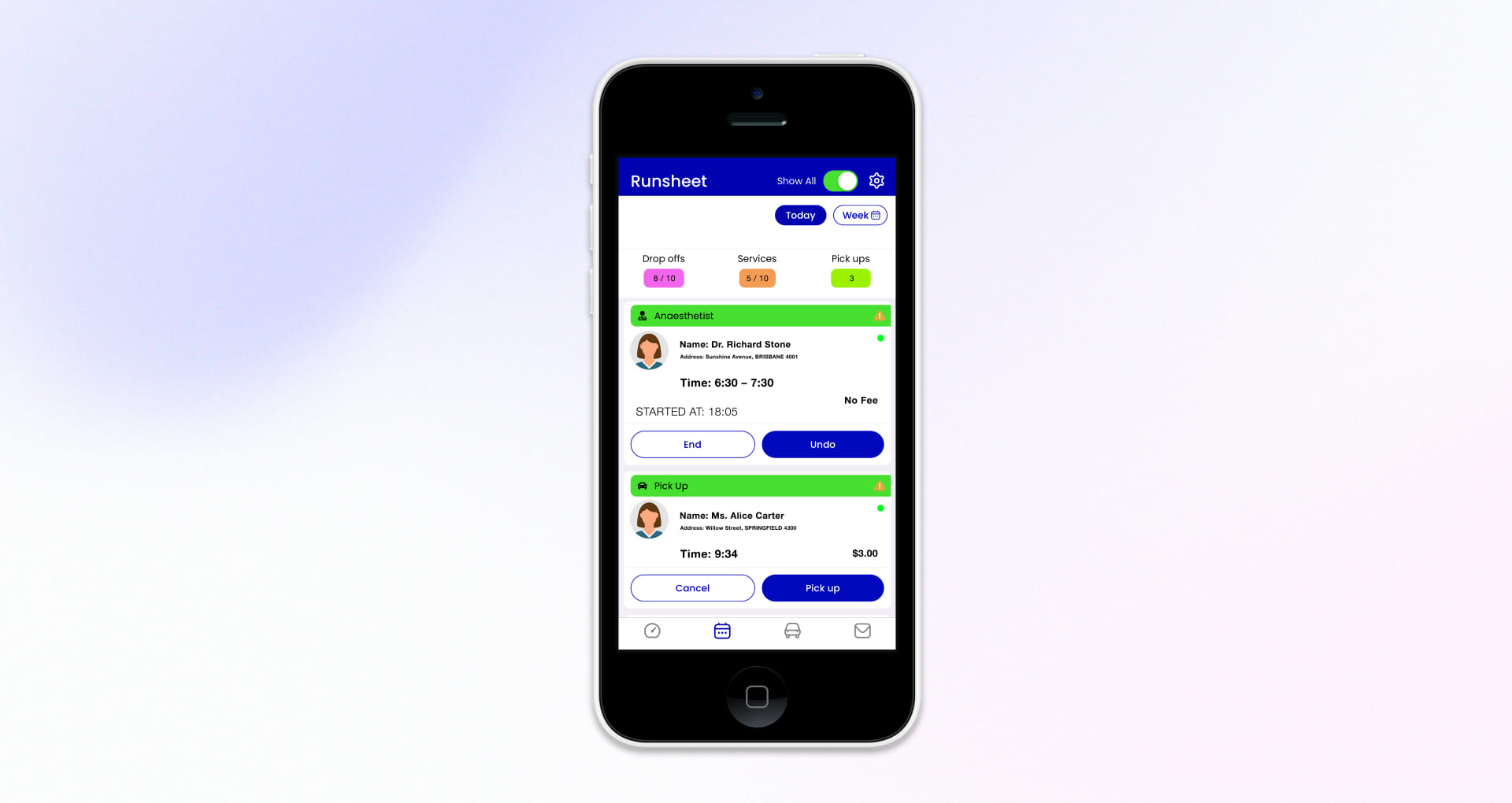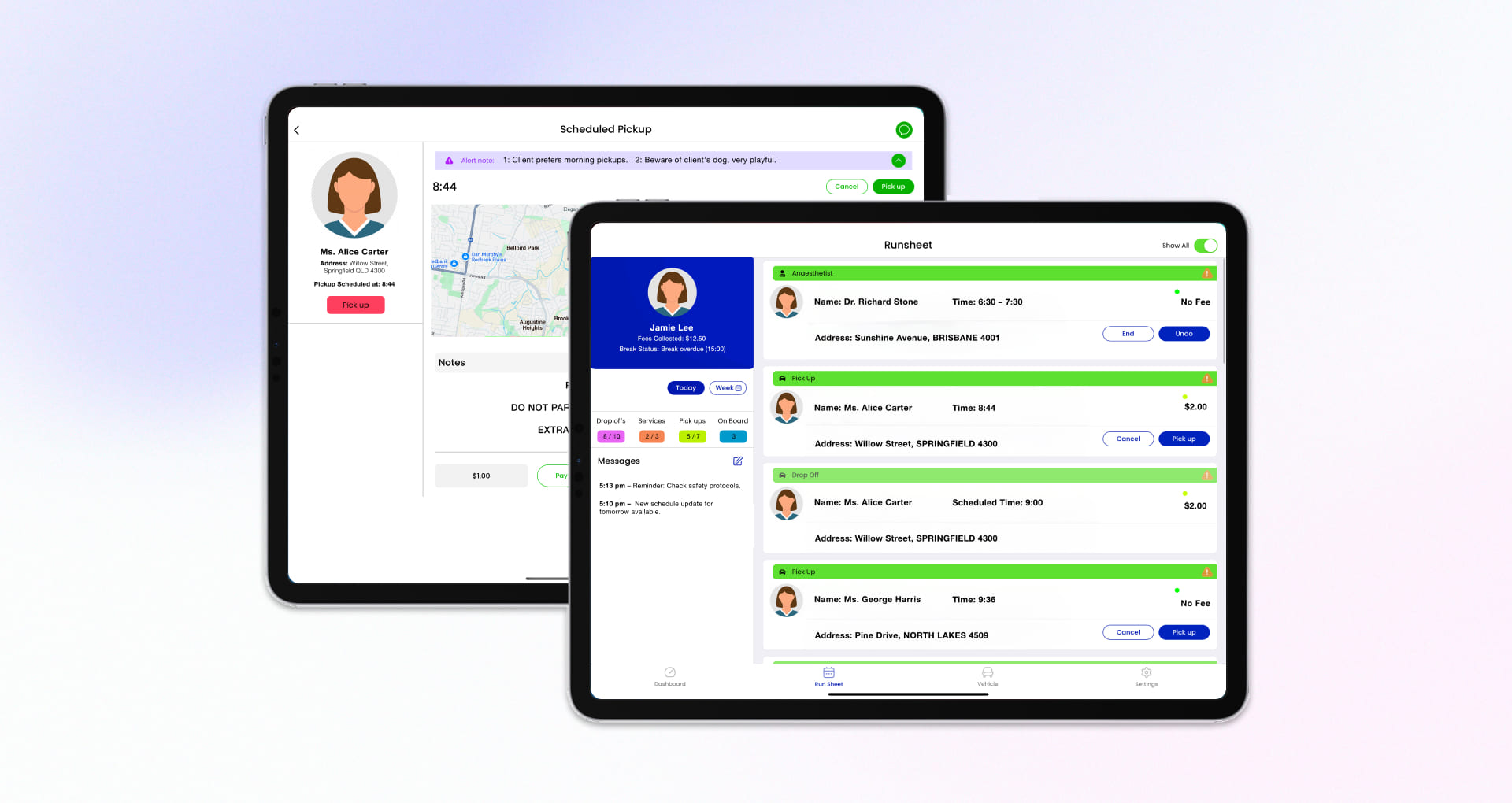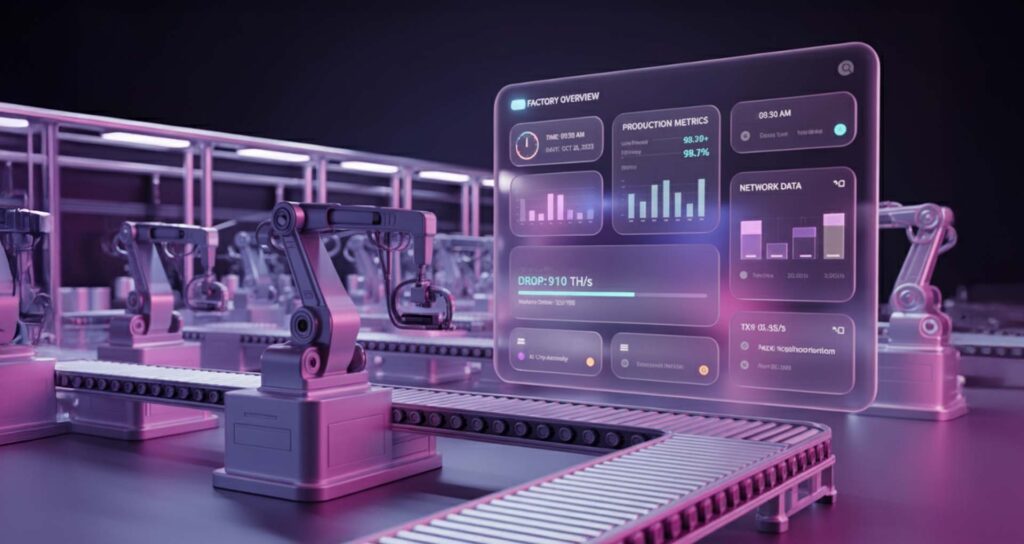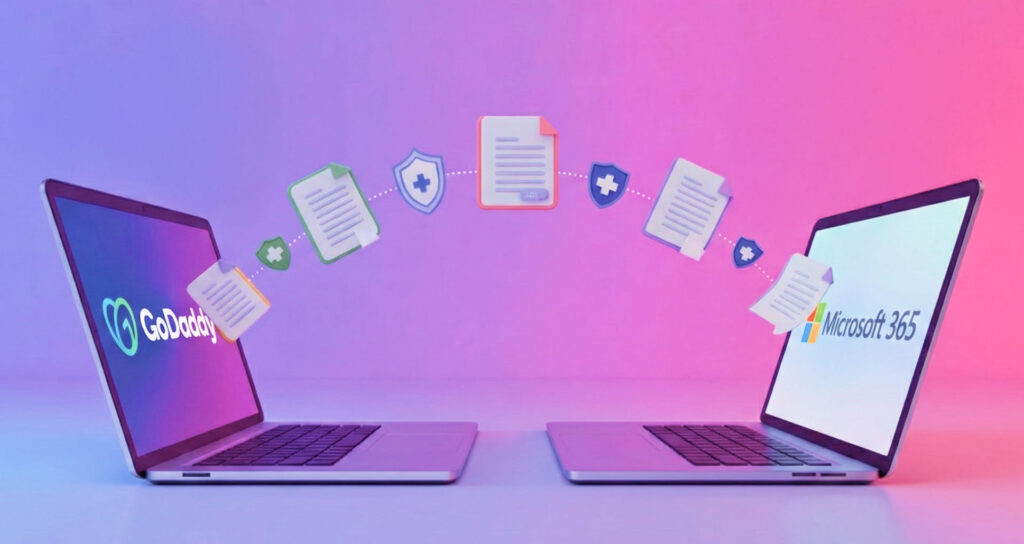
Migration of Healthcare Mobile App from Xamarin To .NET 8
For an Australian public sector provider enhancing digital access for patients, case managers, and operational staff
An Australia-based public healthcare and community services provider partnered with Rishabh Software to modernize its legacy Xamarin-based mobile app. This project involved the migration of a healthcare mobile app from Xamarin to .NET 8 for improved performance, enhanced scalability, and a unified cross-platform experience. The main goal was to improve staff efficiency, expand stakeholder access, and improve patient engagement.
Capability
Application Migration
Industry
HealthTech
Country
Australia
Key Features
Our team modernized and migrated the client’s healthcare mobility app to serve not only operational staff but also patients and case managers. The re-engineered app empowers field workers, patients, and case managers with advanced features, a consistent UX and real-time event workflows for streamlined healthcare delivery.
Cross-Platform Re-Architecture with .NET 8.0
Fully re-engineered the mobile app from Xamarin Native to .NET 8.0 for both Android and iOS. This resulted in flawless cross-device performance, minimized technical debt, and improved scalability for future upgrades.
Multi-Tiered User Access & Security
Designed a robust, role-based access control system to protect sensitive healthcare data. Custom-built user experiences for Workers, Patients, and Case Managers to ensure compliance with data protection regulations while enhancing usability.
Full-Spectrum Event Lifecycle Integration
Introduced advanced event orchestration capabilities so users can initiate, update, and manage all essential operational functions from job dispatch to incident logging directly within the mobile app. This ultimately improved responsiveness and reduced manual effort.
Embedded Multimedia & Contextual Reporting Tools
Enabled real-time documentation by embedding photo and note-taking features within event workflows. Users can now filter, organize, and generate formatted reports (RTF) with a tap to streamline compliance reporting and audits.
Challenges
The legacy app was functionally limited to healthcare workers due to which two vital stakeholder groups were isolated. This exclusion of patients and case managers hampered service delivery.
Fragmented updates meant only iPads supported new workflows. Android and iPhone users operated outdated versions which lead to user frustration, errors, and reduced app trust.
Essential tasks such as breaks, receipts, or incident logging couldn't be executed in-app. Staff were forced into inefficient workarounds which increased the administrative burden.
Without proper role-based access control, all users accessed the same interface and data layers. This posed compliance risks under healthcare data protection laws.
The app lacked built-in documentation tools. Staff had to switch to third-party apps to take notes or attach photos which disrupted workflows and delayed response times.
Solutions
To address these challenges, we executed a comprehensive modernization strategy, beginning with the upgrade of the healthcare mobile application from Xamarin to .NET 8. We rebuilt the architecture to support scalable, secure, and cross-platform operations customized for all user groups.
Strategic Migration to .NET 8.0
Orchestrated a zero-downtime transition from Xamarin Native to .NET 8.0 Android and iOS environments. This ensured compatibility with evolving OS standards and boosted runtime performance.
Modular, Event-Centric Architecture
Architected the app around a modular event engine to enable real-time, context-aware handling of jobs, incidents and checks. QR integration ensured quick patient identification & enhanced responsiveness.
Granular Access Control Framework
Developed a scalable role-management system with customizable workflows. Patients access only their transport and booking details, while case managers oversee multiple client accounts.
Device-Agnostic UX Refactor
Redesigned UI logic to maintain consistent behavior across iOS, Android, and iPadOS platforms to increase stakeholder, support higher adoption rates and minimize training time.
Outcomes
Increase in stakeholder engagement through inclusion of patients and case managers in the mobile ecosystem.
Reduction in administrative load due to built-in reporting, event tracking, and secure access control.
Platform parity with consistent feature delivery across iOS, Android, and iPadOS.
Technologies Used




Project Snapshots


Recent Case Studies
Optimize your cloud infrastructure, implement robust solutions, and stay ahead of trends with our resource hub.


